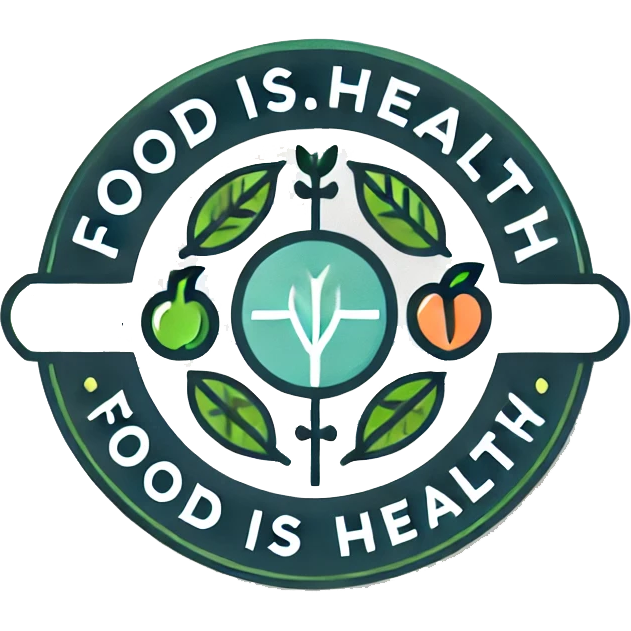Functional foods have become increasingly popular as people look for natural ways to support their health and prevent illness. These are foods that go beyond basic nutrition to offer additional health benefits, such as improved immune function, reduced inflammation, and support for heart health. But can functional foods really play a role in preventing diseases and keeping us healthier? Let’s dive into what functional foods are, how they work in preventive health, and the best ways to incorporate them into a balanced diet.

What Are Functional Foods?
Functional foods are foods that provide health benefits beyond their nutritional content. They can be natural foods, like fruits, vegetables, nuts, and fish, or fortified foods, where nutrients have been added to enhance their benefits. Some examples include:
- Probiotic-rich foods (like yogurt and kefir) that support gut health
- Omega-3-rich foods (like salmon and chia seeds) that benefit heart and brain health
- Antioxidant-rich foods (like berries and dark chocolate) that help protect cells from damage
- Fiber-rich foods (like whole grains and legumes) that aid digestion and control blood sugar levels
By consuming these foods regularly, you may help improve your body’s resilience against certain chronic illnesses, contributing to overall better health.
Why Preventive Health Is Important
Preventive health focuses on lifestyle choices, like eating well, exercising, and avoiding harmful habits, to help reduce the risk of developing serious health issues, like heart disease, diabetes, and cancer. According to many healthcare experts, preventive health strategies can greatly improve quality of life, reduce healthcare costs, and increase life expectancy.
Functional foods can play a significant role in this approach by helping the body stay strong, balanced, and ready to fight off diseases before they take hold.
How Functional Foods Support Preventive Health
1. Boosting Immunity
Some functional foods are known for enhancing immune system function, which is crucial in helping the body defend against infections. For instance, foods rich in vitamin C (such as oranges and strawberries) and zinc (like pumpkin seeds and chickpeas) support the production of immune cells, making it easier for your body to fight off pathogens.
Probiotics found in fermented foods like yogurt, kefir, and sauerkraut also support the immune system by promoting a healthy gut. Since a large portion of the immune system is located in the gut, a well-balanced microbiome can make it easier for the body to respond to illness.
2. Reducing Inflammation
Chronic inflammation is linked to many diseases, including heart disease, arthritis, and even some cancers. Functional foods, especially those rich in omega-3 fatty acids, antioxidants, and anti-inflammatory compounds, can help reduce inflammation. Salmon, walnuts, and flaxseeds are rich in omega-3 fatty acids, while fruits like blueberries and vegetables like broccoli are loaded with antioxidants that fight inflammation in the body.
Turmeric, a spice containing the compound curcumin, is a particularly powerful anti-inflammatory food. Studies have shown that regular consumption of turmeric can help reduce the symptoms of inflammation-related conditions, such as arthritis, making it a popular choice for preventive health.
3. Supporting Heart Health
Heart disease remains one of the leading causes of death worldwide, and functional foods can help reduce its risk factors. Fiber-rich foods like oats, beans, and whole grains can lower cholesterol levels by binding with cholesterol particles in the digestive system and carrying them out of the body.
In addition, potassium-rich foods like bananas, avocados, and leafy greens can help regulate blood pressure by balancing sodium levels in the body. Meanwhile, polyphenol-rich foods like dark chocolate and green tea have been shown to improve circulation and blood vessel function, further supporting heart health.
4. Managing Blood Sugar Levels
Blood sugar management is crucial in preventing diabetes, a chronic illness that affects millions of people worldwide. Functional foods high in fiber, like whole grains and legumes, slow down the absorption of sugar into the bloodstream, preventing rapid spikes and crashes. This can help lower the risk of insulin resistance and diabetes.
Certain plant-based foods, such as cinnamon, may even improve insulin sensitivity. Including these foods in your diet can help keep blood sugar levels stable, making functional foods an effective tool in preventing type 2 diabetes.
5. Improving Digestive Health
A healthy digestive system is fundamental to overall well-being, and functional foods like high-fiber vegetables, whole grains, and fermented foods play a big role here. Fiber promotes regular bowel movements and feeds beneficial bacteria in the gut. A diet rich in fiber can reduce the risk of digestive issues such as constipation, diverticulitis, and irritable bowel syndrome (IBS).
Probiotics, found in fermented foods like yogurt and kimchi, support a healthy gut microbiome, which is critical for digestion and immunity. The presence of a healthy microbiome can prevent the growth of harmful bacteria, helping to reduce the risk of gastrointestinal diseases and even certain cancers.
Best Functional Foods for Preventive Health
Including a variety of functional foods in your daily diet can help provide the body with the nutrients it needs to function optimally. Here are some top functional foods to consider:
- Berries – High in antioxidants and vitamin C, they support immunity and reduce inflammation.
- Leafy Greens – Rich in vitamins A, C, and K, as well as fiber, they support heart and digestive health.
- Fatty Fish – Salmon and mackerel provide omega-3 fatty acids for heart and brain health.
- Nuts and Seeds – Almonds, walnuts, and chia seeds offer a good source of fiber, protein, and healthy fats.
- Whole Grains – Brown rice, oats, and quinoa provide fiber and essential vitamins for blood sugar and heart health.
- Garlic – Contains allicin, a compound with anti-inflammatory and antimicrobial properties that boost immune function.
- Green Tea – Contains polyphenols that improve circulation and reduce inflammation.
- Probiotic Foods – Yogurt, kefir, and kimchi promote gut health and immune support.
- Turmeric – A powerful anti-inflammatory that can help reduce the risk of chronic diseases.
How to Incorporate Functional Foods into Your Diet
To make functional foods a consistent part of your preventive health plan, consider the following tips:
- Start Your Day Right: Incorporate functional foods like berries and nuts into your breakfast. A bowl of oatmeal with blueberries and chia seeds, for example, is an easy way to add antioxidants and fiber to your diet.
- Add Colorful Veggies: Aim for a variety of colors on your plate. Brightly colored fruits and vegetables are typically rich in different vitamins and antioxidants.
- Snack Smart: Choose nuts, yogurt, or dark chocolate for snacks instead of processed foods. These options not only taste great but also provide nutrients that support various bodily functions.
- Make Simple Swaps: Use whole grains instead of refined grains, like brown rice instead of white rice. Whole grains have more fiber, which helps keep your digestive system healthy.
- Stay Consistent: For preventive health benefits, consistency is key. Regularly consuming functional foods helps build a stronger foundation for your health over time.
Conclusion: Functional Foods as a Key to Preventive Health
Using functional foods as part of a preventive health strategy is both practical and effective. By choosing nutrient-dense foods that offer additional health benefits, you can support your immune system, reduce inflammation, promote heart health, regulate blood sugar, and improve digestion. While functional foods are not a substitute for medical treatment, they are a valuable component of a healthy lifestyle that can help reduce the risk of many chronic diseases.
Whether it’s adding a handful of berries to your breakfast, snacking on nuts, or sipping green tea, incorporating functional foods into your daily routine can be a delicious and empowering way to take control of your health and well-being. Remember, the best approach to preventive health is a balanced diet combined with regular exercise, good sleep, and stress management.
Make sure to check out more articles in our News & Views section. Feel free to reach out any time to collaborate with Food Is Health on projects which help people heal through natural food & nutrition.
Organic vs Conventional Food | Food Preservatives & Additives | Anti-Inflammatory Diets | Gut Health & Probiotics | Plant-Based Diets | Detox Diets & Cleanses | Food Allergies & Sensitivities Functional Foods | Sustainable Eating & Food Waste | Ag Related Topics | Popular Topics
